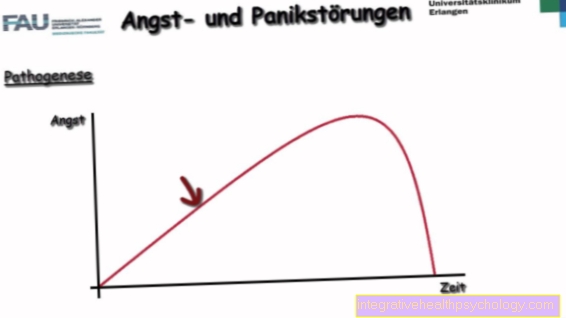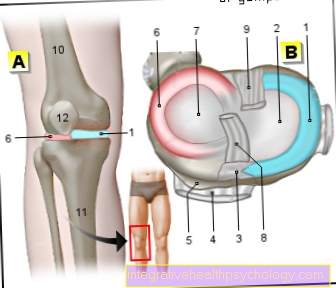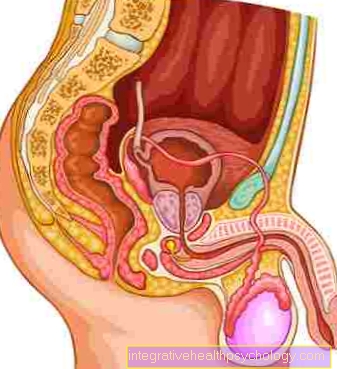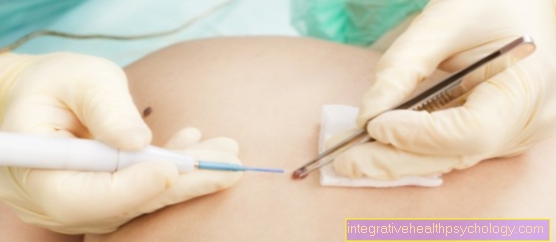Is Colon Cancer Hereditary?
introduction
Colon cancer is one of the most common cancers in adults. On the one hand, it poses a great danger, on the other hand, the preventive programs and treatment options for this disease are very promising.
Colorectal cancer is diagnosed in most people at an advanced age. It is not uncommon for it to be at an advanced stage at this point. However, a small proportion of colon cancer can be traced back to hereditary genetic defects or familial predispositions. In these cases, an earlier age of onset can be expected, so that preventive examinations should also be started earlier.

Hereditary diseases with a higher risk of colon cancer
When speaking of hereditary cancer, a distinction must be made between clear genetic defects and familial predisposition.
The latter is only associated with a slightly increased risk of colon cancer and does not necessarily have to be genetic. Individual risk factors such as obesity and smoking can also be responsible for part of the familial accumulation.
Genetic mutations such as Lynch syndrome or familial adenomatous polyposis are referred to as actual inheritance. With these syndromes there is an extremely high risk of developing colon cancer in the course of life.
You might also be interested in this topic: Polyps in the intestine
That's how many percent are inherited
The gene mutations that can cause colon cancer are comparatively rare. Even if the rate of colon cancer in one of the genetic diseases is extremely high, only a maximum of 5% of colon cancer can be attributed to such a syndrome.
About 70% of those affected develop colon cancer. However, other cancers can also occur favored by the hereditary syndromes. Uterine cancer occurs in up to 50% of cases, and more rarely gastric or ovarian cancer. In the case of the FAP syndrome, which is associated with several polyps in the colon, there is even an almost 100% risk of colon cancer. Sooner or later, all those affected would develop malignant tumors from the numerous polyps if left untreated.
You can find more information on the inheritance of colon cancer on our website: What are the causes of colon cancer?
With these types of tumors, I also have a risk of colon cancer
The so-called polyps play an important role in the development of colon cancer. They are also known as adenomas and are initially benign growths of the intestinal mucosa.
The rapidly growing mucosal ulcers can change in the short or long term and develop into malignant cancerous ulcers. In hereditary tumor syndromes, too, genetic defects can lead to the growth of the polyps. The so-called FAP syndrome is associated with the fact that numerous benign tumors develop at a young age, so that the risk of malignant cancer developing later is almost 100%.
You might also be interested in:
- Colon cancers
- Symptoms of polyps in the intestines
How can I tell if I have a genetic risk for colon cancer?
It is extremely important to discover a potential genetic defect that is associated with high risks for hereditary colon cancer at a young age.
If one parent is already affected by an inheritable tumor syndrome, there is a 50% chance that it was passed on to the child. If such a suspicion exists, an urgent genetic test and comprehensive counseling of the person concerned and the whole family must be carried out. Such a genetic test can be carried out voluntarily. Today, many causal syndromes can already be diagnosed, but with negative results there remains a residual risk of an unidentified syndrome. Regular testing should be carried out at long intervals, especially if one parent is already affected.
You might also be interested in:
- How do you recognize colon cancer?
- How is colon cancer diagnosed?
What can I do to prevent hereditary colon cancer from breaking out?
Numerous test procedures and regular examinations are offered to prevent hereditary colon cancer syndromes.
The most important known syndromes can cause the first changes in childhood. The FAP syndrome, for example, can be accompanied by polyps from the age of 12. Based on the individual risk, a detailed prevention plan should be drawn up with doctors. The most important diagnostic tool is the colonoscopy. It is a relatively harmless procedure in sedation that can be carried out on an outpatient basis within a few minutes. In order to be able to provide effective preventive care and to be able to recognize early stages of cancer, the colonoscopy should be done every year from late adolescence and early adulthood.
Read more on this topic at:
- Colonoscopy
- Colon cancer screening





























